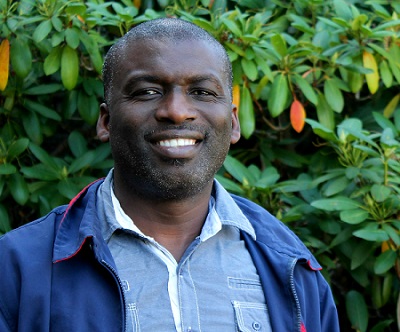Last January, Nova Scotia welcomed Elon Myles.
Trading his sandy tropical home in Jamaica for the white blustery winter of Atlantic Canada, Elon knew that he was headed for some new and exciting experiences.
“I was excited to see snow for the first time,” Elon says. “Prior to moving here in January, I had only seen snow in the movies. To be here and to experience it—to see it and touch it—that was big. My first job after moving here was actually shoveling snow,” he adds with a laugh.  When asked what one of his favourite experiences since coming to Nova Scotia has been, a smile spreads across Elon’s face.
When asked what one of his favourite experiences since coming to Nova Scotia has been, a smile spreads across Elon’s face.
“I was told that it is nice to go to the beaches here,” he chuckles. “I was fooled into that of course. My first trip was down to Point Pleasant Park, and it was a shock when I saw the water. In my experience, the sea is normally blue… here it is not; I thought something was wrong with it at first! Then the person fooled me into believing that the water was warm. I took off my shoes and dipped a foot in— Oh my gosh!” Elon exclaims.
Finding a home at the Mount
“I initially came to attend [another university in Nova Scotia],” Elon says, explaining how the initial university and its community were not a good fit for him. “There was a big culture shock. … [In the end] I chose the Mount because it seemed smaller, friendlier, and everyone I spoke to was very helpful. I decided that this was the place I wanted to study.”
Those studies are within the graduate Education program, specifically in Curriculum Studies. Elon says he wants to look to the past to support learning in the future. “I want to do research in how people who have had unfortunate situations—such as people who have experienced starvation, major accidents, displacement, bombing, or disasters—have overcome them, and to develop a curriculum in which they can use their own experiences to supplement their learning.”
The impact of personal pasts on learning
Elon believes that our personal situations and pasts are important factors in when, where, and how we learn. While his graduate research is focused on hardships regarded as more extreme than the day-to-day trials most people face, Elon suggests that those can be equally as influential to student success.
“Sometimes what makes the difference is human interaction, and that’s what makes the difference here [at the Mount]. People are more open to help, and they are more understanding of your situation.” Elon adds, “I have three daughters home in Jamaica, but my son has been here with me since July, he is only two years old. Sometimes I take him with me to classes, and it is very nice that I am able to do that—for me and for him. He is adjusting so well, and he knows a lot of people here; in fact, when we come to campus, sometimes he will see people I do not recognize and call them by name! He has immersed himself into the university along with me.”
Elon tells us that when he graduates, he hopes to continue his studies through the PhD in Educational Studies offered through the Mount (in collaboration with Acadia University and St. Francis Xavier University), and in spite of our cold winters and waters, Elon doesn’t have plans to leave Nova Scotia any time soon.
“My children want to come here to live, and so I think we will try to stay here,” Elon smiles. “And the weather really isn’t that bad—it is nice to go to the shore. It is just touching the water that is my problem. Somebody told me that the lakes are not too bad, so maybe I will try that next year.”